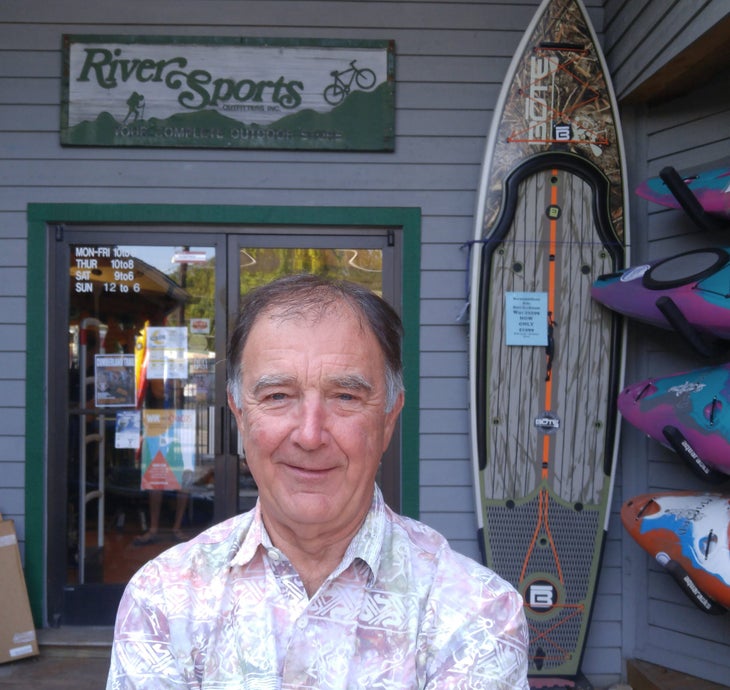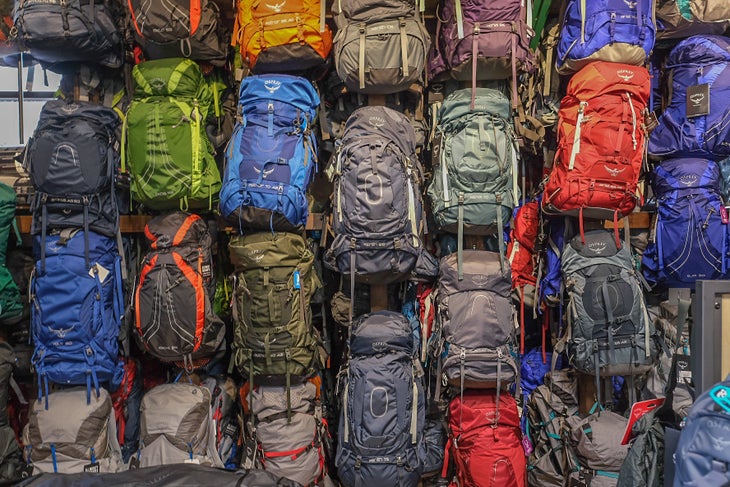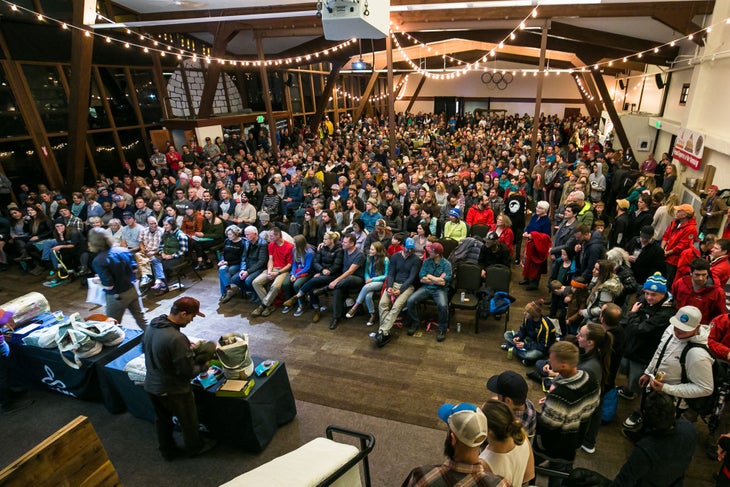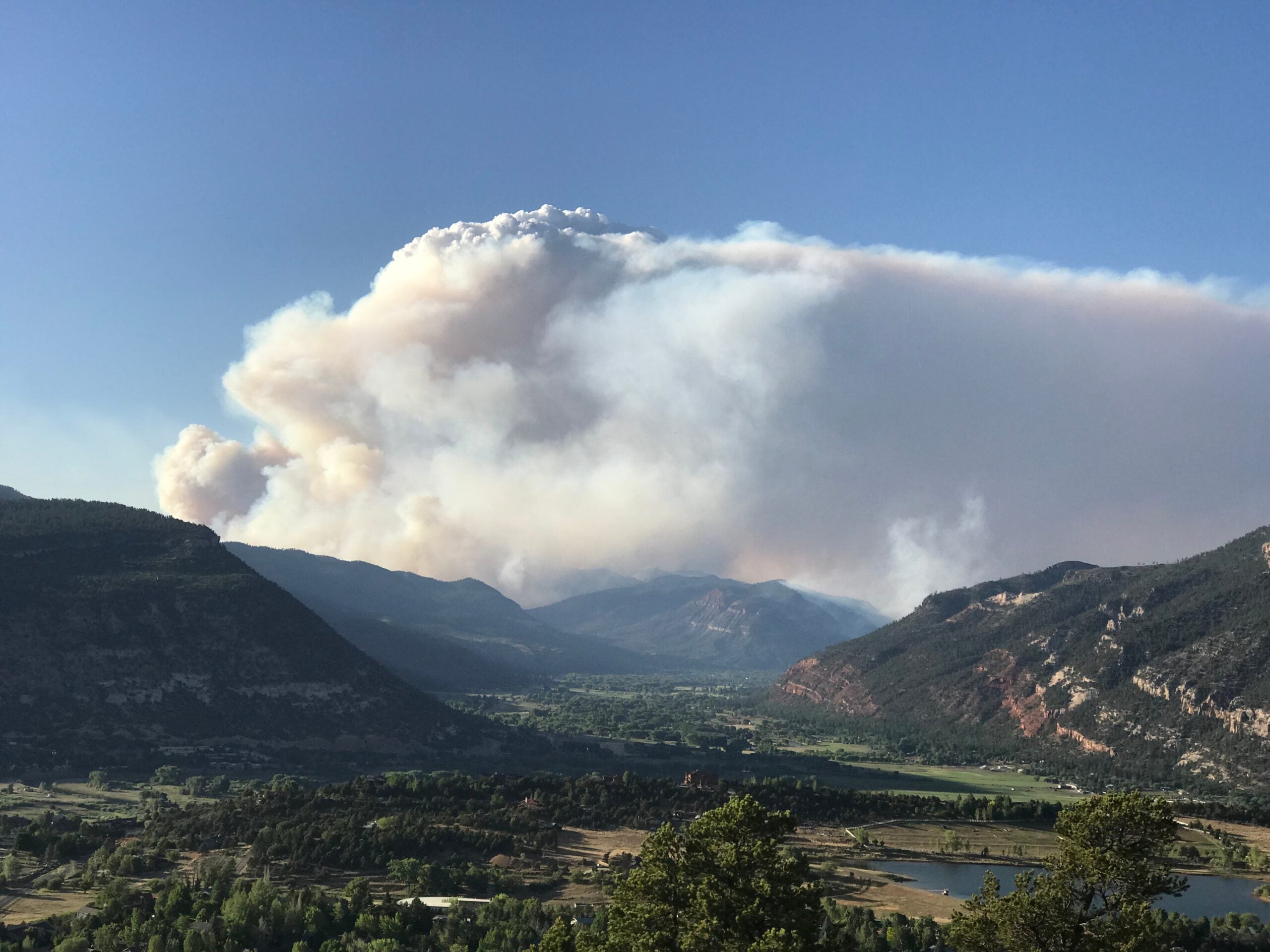Last year a Congressional report confirmed what many within the outdoor industry already knew: climate change will transform the way we do business. The report projected that unless serious action is taken to curb global warming, the U.S. economy could shrink by nearly 10 percent in the next 80 years.
It specifically called out the danger to outdoor recreation and tourism economies. Wildfires will shut down national forests more frequently. Certain game species will shift their habitat, affecting local hunting and fishing. And warmer, drier winters will have a severe impact on snow sports.
Because many independent retailers have already experienced the effects of climate change firsthand, we wanted to know what they’re doing to prepare for what one business owner called “an existential crisis.”
Here’s what they had to say:
Ed McAlister, River Sports Outfitters, Knoxville, TN
Ed McAlister has been in business a long time—nearly 40 years—and has seen his fair share of seasonal changes; however, he says recent weather fluctuations have been significantly more dramatic.
“Some years, we just don’t have any cold weather,” McAlister said.
Tennessee, like much of the Southeast, is projected to experience a rise in the number of days above 95°F, longer, more frequent droughts, and severe flooding.

McAlister believes climate change isn’t the sole challenge independent retailers face, but it is certainly compounding them. Competing against online shopping and big box stores will be that much harder if locals aren’t getting outside.
“We’re buying much more conservatively because of the fluctuations,” he said. “You can’t afford to get stuck with inventory anymore.”
McAlister has adapted his buying strategy to reflect unpredictable and often extreme weather. Instead of placing two to three big orders per season, he now plans for smaller, more frequent buys.
“You always try to make the best of a bad situation,” he said. “When it rains a lot, boaters are out. When it’s dry and hot, climbers are out.”
For McAlister, it’s about structuring his business to be nimble and capable of servicing the needs of the customer based on the situation.

Ben Rockis, Backcountry Experience, Durango, CO
Warmer, drier winters paired with increased wildfire activity is in the longterm forecast for Southwest Colorado and last year Durango received a back-to-back combination of each. A hot, dry winter segued into the 416 Fire, which shut down the San Juan National Forest and filled the town with heavy smoke at the height of summer.
“It basically hindered any outdoor activity locally,” said Backcountry Experience owner Ben Rockis.
Rockis, who has now experienced two severe wildfire seasons, expects to see this pattern more frequently.
“I believe that the rise in temperatures will hurt the winter season the most,” he said. “We’re planning on ordering less winter product.”
That, however, doesn’t mean lost sales.
“Anytime there’s chaos, there’s always opportunity,” Rockis said.
A shorter winter means a longer hiking, running, and climbing season. He sees potential in more backpack and footwear sales, as well as hydration and sun protection. Rockis has also begun working with several brands to develop a buying plan specifically for fire season. During the 416 Fire, Backcountry Experience bulked up on footwear and other gear for the influx of firefighters, often transporting special orders directly to the front lines.
Rockis emphasized the importance of inventory management going forward.
“As a small business, we can control our inventory on a shorter notice and work with vendors to accommodate that.”
Bill Gaydosh, Taos Mountain Outfitters, Taos, NM
Like Colorado, New Mexico experienced a severe wildfire season last summer. Several national forests were closed including the Carson near Taos.
“We had a huge summer from a sales point last year,” said owner Bill Gaydosh.
He attributed this surprising spike in sales to increased foot traffic as the fire “pushed people into town to eat green chile and look at pottery.”
Gaydosh, who purchased TMO three years ago, has restructured the business to not be dependent on weather.
“I can’t sit there and make decisions on what the weather might be,” he said.
And while Gaydosh does believe that climate change will affect the environment in Northern New Mexico, he doesn’t think tourism will be dramatically altered because of the strong arts and culture scene in Taos.
After taking over ownership of TMO, Gaydosh refocused the business to general outdoors with an emphasis on apparel and footwear. When it comes to buying, he plans on a good season and makes adjustments to his orders if it doesn’t pan out.
Brendan Madigan, Alpenglow Sports, Lake Tahoe, CA
Yes, California’s snowpack is 161 percent above average this year, but that doesn’t mean climate change isn’t real. Just ask Brendan Madigan, owner of Alpenglow Sports who has lived in Lake Tahoe since 2003.
In addition to hotter summers, Madigan has noticed more wildfires as well as rain instead of snow during the winter. Climate scientists expect temperatures to rise five to seven degrees in the Sierra Nevada, leading to a substantial drop in snowpack by the end of the century.
“That has tremendous consequences for a resort destination,” Madigan said.

Alpenglow Sports, which is well known for its robust events program, carries a breadth of snow sports and summer gear. Madigan said inventory management has become even more “fierce” as a result of increasingly unpredictable weather. However, he believes there’s only so much a retailer can do internally.
“What we’ve done is try to align with the brands that are actively making a difference.”
Madigan intentionally buys more from companies that are taking political stances and developing eco-friendly products. And while he believes outdoor brands should be doing more to reduce their carbon footprint and lobby for climate initiatives, he has found one substantive way independent retailers can make a difference: events. Through Alpenglow’s Winter Speaker Series, Madigan raised $30,000 for Protect Our Winters and provided the non-profit with a captive audience.
“We can make a really comprehensive difference in our own community,” Madigan said. “If you don’t do that, you make yourself irrelevant.”


